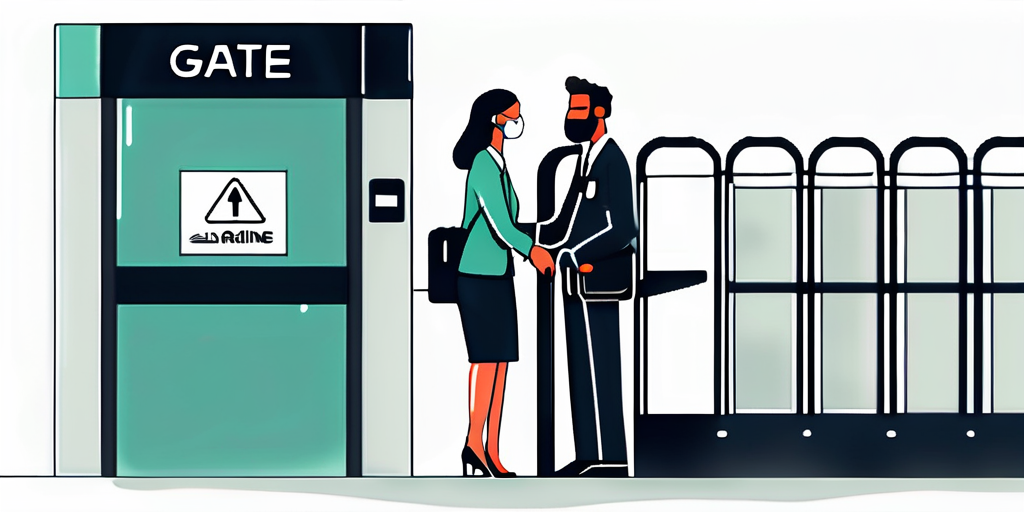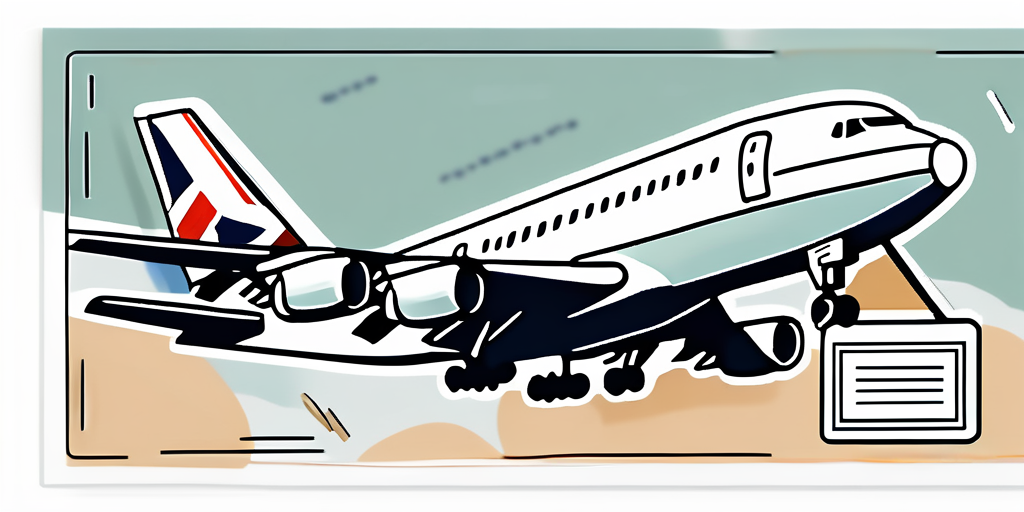UK Denied Boarding Compensation: What You Need to Know
Get insights into denied boarding compensation procedures in the UK. Learn about eligibility, claims process, and compensation for passengers.
Denied boarding can be a frustrating experience for travelers. Whether you're planning a business trip or a vacation, being denied boarding can cause significant inconvenience and disruption to your plans. In this article, we will provide you with all the important information you need to know about denied boarding compensation in the UK. From understanding the concept of denied boarding to calculating your compensation and claiming it, we've got you covered.
Understanding Denied Boarding
Denied boarding occurs when an airline refuses to allow a passenger to board a flight, even though they have a valid ticket and have arrived at the airport on time. There are various reasons why passengers may be denied boarding, and it's essential to understand the implications and your rights in such situations.
 When faced with denied boarding, passengers may experience frustration and inconvenience, especially if they have important commitments or connections at their destination. It can disrupt travel plans and lead to unexpected expenses, such as accommodation or rebooking fees. Understanding the reasons behind denied boarding can help passengers navigate the situation more effectively and seek appropriate compensation or assistance from the airline.
When faced with denied boarding, passengers may experience frustration and inconvenience, especially if they have important commitments or connections at their destination. It can disrupt travel plans and lead to unexpected expenses, such as accommodation or rebooking fees. Understanding the reasons behind denied boarding can help passengers navigate the situation more effectively and seek appropriate compensation or assistance from the airline.
Definition of Denied Boarding
Denied boarding refers to the situation where an airline denies a passenger the right to board a flight, despite having a confirmed reservation and being present at the gate before the boarding deadline. This can happen due to factors such as overbooking, operational issues, or security concerns.
Overbooking, a common practice in the airline industry to maximize seat occupancy and revenue, can sometimes result in more passengers showing up for a flight than there are available seats. In such cases, airlines may resort to denied boarding to balance the number of passengers and available seats, causing inconvenience to affected travelers. Understanding the complexities of overbooking and its impact on denied boarding situations can help passengers better prepare for such scenarios and explore alternative travel options.
Common Reasons for Denied Boarding
There are several common reasons for denied boarding. Overbooking is one of the primary reasons, where airlines sell more tickets than the available seats on a flight. Other reasons may include issues with travel documents, non-compliance with airline policies, and situations where passengers are deemed unfit to travel due to intoxication or disruptive behavior.
Travelers should familiarize themselves with airline policies and regulations to minimize the risk of being denied boarding due to avoidable reasons such as inadequate documentation or failure to comply with baggage requirements. By proactively addressing potential issues that could lead to denied boarding, passengers can enhance their travel experience and reduce the likelihood of disruptions during their journey.
Legal Framework for Compensation
When it comes to compensation for denied boarding, there are specific legal provisions in place to protect passengers' rights. Two key regulations that govern denied boarding compensation in the UK are the EU Regulation 261/2004 and the UK's Aviation Consumer Protection Law.
 Understanding the legal framework surrounding compensation for denied boarding is crucial for air passengers. These regulations aim to ensure that passengers are fairly compensated for any inconvenience caused by denied boarding situations. By having these laws in place, passengers can feel more secure in their rights when facing such circumstances.
Understanding the legal framework surrounding compensation for denied boarding is crucial for air passengers. These regulations aim to ensure that passengers are fairly compensated for any inconvenience caused by denied boarding situations. By having these laws in place, passengers can feel more secure in their rights when facing such circumstances.
EU Regulation 261/2004
The EU Regulation 261/2004 sets out the rights of passengers in the event of denied boarding, flight cancellations, and long delays. It applies to all flights departing from EU airports as well as flights to EU airports on EU-based carriers. Under this regulation, passengers may be entitled to compensation depending on the circumstances of the denied boarding.
EU Regulation 261/2004 not only covers compensation for denied boarding but also includes provisions for assistance such as meals, refreshments, and accommodation when necessary. This regulation serves as a comprehensive guide for airlines and passengers alike, outlining the responsibilities and rights of each party in the event of denied boarding.
UK's Aviation Consumer Protection Law
In addition to the EU Regulation 261/2004, the UK has its own legislation that protects air passenger rights. The UK's Aviation Consumer Protection Law ensures that passengers have certain rights and entitlements in cases of denied boarding, flight cancellations, delays, and other travel-related issues.
The UK's Aviation Consumer Protection Law works in conjunction with EU Regulation 261/2004 to provide a robust framework for passenger protection. This dual-layered approach emphasizes the importance of safeguarding passengers' rights and holding airlines accountable for any breaches of these regulations.
Eligibility for Compensation
Not all cases of denied boarding result in compensation, and understanding the eligibility criteria is important. While the specific conditions may vary depending on the regulations applicable to your situation, there are some general criteria that determine eligibility for compensation.
 It is crucial for passengers to be aware of their rights when facing denied boarding situations. In addition to the standard eligibility requirements, it is essential to consider the duration of the delay caused by the denied boarding. Some regulations specify a minimum delay threshold that must be met for compensation to be applicable. This ensures that passengers are fairly compensated for the inconvenience caused by the airline's actions.
It is crucial for passengers to be aware of their rights when facing denied boarding situations. In addition to the standard eligibility requirements, it is essential to consider the duration of the delay caused by the denied boarding. Some regulations specify a minimum delay threshold that must be met for compensation to be applicable. This ensures that passengers are fairly compensated for the inconvenience caused by the airline's actions.
Criteria for Eligibility
To be eligible for compensation, passengers must typically have a confirmed reservation and valid ticket, arrive on time for check-in and boarding, and comply with all airline requirements. Additionally, the denied boarding should not be due to exceptional circumstances beyond the airline's control, such as severe weather conditions, political unrest, or security issues.
Furthermore, passengers should be aware that the amount of compensation may vary depending on the length of the delay caused by the denied boarding. In some cases, passengers may be entitled to additional compensation if the delay exceeds a certain threshold. This additional compensation is designed to reflect the extended inconvenience experienced by passengers as a result of the denied boarding.
Exceptions to the Rule
There are exceptions to the eligibility criteria for compensation in certain situations. For example, if the passenger voluntarily gives up their seat in exchange for benefits offered by the airline, they may not be entitled to compensation. Similarly, if the passenger is denied boarding due to reasons related to their own conduct, such as non-compliance with security regulations or improper travel documentation, compensation may not be applicable.
It is important for passengers to be aware of these exceptions and understand the circumstances under which they may not be eligible for compensation. By being informed about their rights and responsibilities, passengers can navigate denied boarding situations with greater clarity and advocate for fair treatment from airlines.
Calculating Your Compensation
Now that we understand the legal framework and eligibility criteria, let's dive into how compensation for denied boarding is calculated. The amount of compensation can vary depending on various factors, and it's crucial to know what influences the compensation amount and how to calculate what you're entitled to.
When considering compensation for denied boarding, it's essential to understand that the regulations governing this area can be intricate and may differ from one jurisdiction to another. For instance, in the European Union, Regulation 261/2004 sets out specific rules for compensation in cases of denied boarding, cancellations, and long delays. On the other hand, in the United States, the Department of Transportation has its own guidelines regarding compensation for denied boarding situations.
Factors Influencing Compensation Amount
The specific factors that influence the compensation amount may vary based on the regulations and airline policies. However, some common factors include the distance of the flight, the length of the delay caused by the denied boarding, and the impact on travel plans and expenses incurred as a result.
Additionally, the class of your ticket, whether you were involuntarily bumped from the flight, and the overall policies of the airline can also play a role in determining the compensation amount. Understanding these factors can help you assess what you may be entitled to in the event of denied boarding.
How to Calculate Your Due Compensation
Calculating the exact compensation amount can be complex, but there are online tools and resources available to help. These tools usually take into account the relevant regulations, flight details, and individual circumstances to provide an estimate of the compensation you may be entitled to. It's important to keep all relevant documents and records to support your claim.
Furthermore, seeking assistance from consumer rights organizations or legal professionals who specialize in aviation law can provide you with valuable insights into the calculation of compensation for denied boarding. By leveraging their expertise, you can navigate the intricacies of compensation calculations more effectively and increase your chances of receiving fair recompense for the inconvenience experienced.
Claiming Your Compensation
Once you've determined your eligibility and calculated your compensation, the next step is to file a claim. Claiming your compensation for denied boarding can be a straightforward process if you follow the necessary steps.
Steps to File a Claim
When filing a claim for denied boarding compensation, it's important to gather all the required documentation, such as your boarding pass, ticket, and any communication with the airline. You can usually submit your claim directly to the airline through their website or customer service channels. Follow the instructions provided by the airline and ensure that you include all relevant details and supporting documents.
Dealing with Denied Claims
In some cases, the airline may reject your claim for denied boarding compensation. If this happens, you may consider seeking legal advice or escalating the matter to the appropriate regulatory bodies or consumer protection agencies. There are also alternative dispute resolution schemes available to help resolve conflicts between passengers and airlines.
Being denied boarding is undoubtedly frustrating, but understanding your rights and the compensation process can provide some relief. Remember to stay informed, keep relevant records, and take appropriate action to claim the compensation you're entitled to. Safe travels!
Ready to Claim Your Compensation with ClaimCompass?
If you've experienced denied boarding and are feeling overwhelmed by the process of claiming compensation, let ClaimCompass take the wheel. Our expertise in EU air passenger rights, backed by EU Regulation 261/2004, allows us to evaluate your situation accurately and fight for the compensation you deserve. With our no-win, no-fee policy, you have nothing to lose. Use our free compensation calculator to check your eligibility and let us handle the rest. If you're entitled to compensation, we'll make sure you receive up to 600€ for your travel disruptions. Don't let the airlines keep what's yours—submit your claim with ClaimCompass today!
